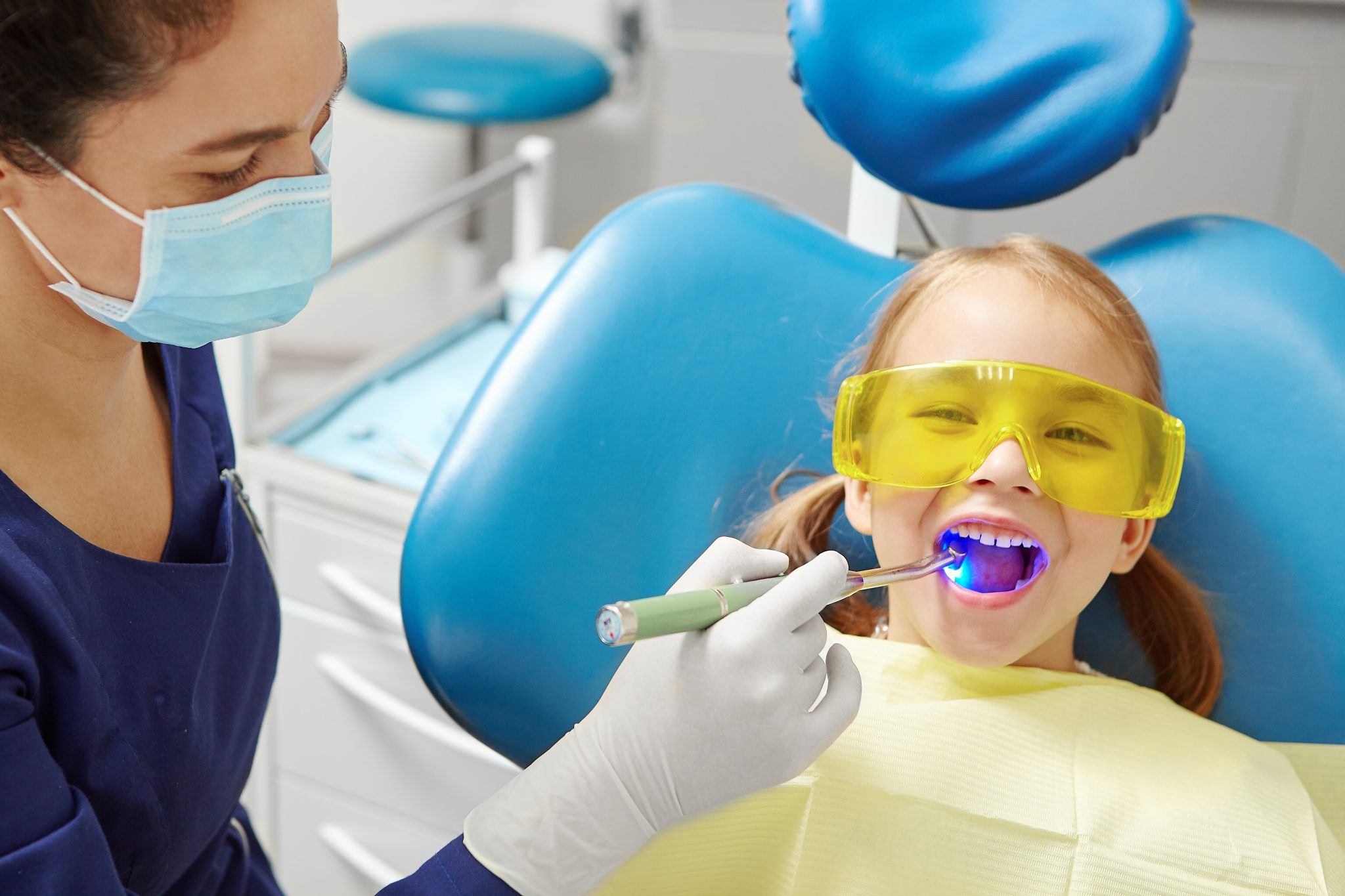A Pediatric dentist treats children from birth through adolescence. Pediatric dentists have skills to interact with infants and children, and this makes visits comfortable and easy for both the parent and child. Finding that perfect pediatric dentist is important, and helps to set the tone for good oral hygiene.
Pediatric dentists provide many procedures and treatments to help keep your child’s teeth and mouth developing properly and feeling great.
Common Pediatric Dentistry Services
- Cleanings and exams
- Fluoride treatments
- Dental sealants
- Deep cleaning
- Fitting oral appliances such as mouthguards
- Surgical procedures including tooth extractions, tooth implants, gum surgery and tissue grafts
- Treatments to restore damaged teeth such as fillings, crowns, and root canals
What Surgeries Does a Pediatric Dentist Perform?
Pediatric dentists perform surgeries that include implants, tooth extractions, gum surgery, and tissue grafts. If your child has been recommended for oral surgery, and the surgery required is not a common surgery done by your pediatric dentist, they will refer you to an oral surgeon. Typically if the surgery involves impacted teeth higher in the gum line, or other areas that are not easy to reach an oral surgeon is required.
Pediatric dentists must complete three or more years of undergraduate education, as well as graduate with either a Doctor of Dental Surgery (DDS) or Doctor of Dental Medicine (DMD). In addition, pediatric dentists must complete an additional 2-3 years of specialized training specifically for diagnosing and treating children.
Pediatric dentists should be seen when an infant gets his or her first tooth or no later than one year old. Attending regular exams and cleanings every six months sets the tone early on, and teaches children at a young age how to care for their teeth. How often your child needs to be seen depends on their dental needs and level of plaque buildup.
Practicing good oral hygiene habits at home and eating a healthy diet can help teach your child how to take great care of their teeth and mouth. Establishing a good relationship with your dentist is important, and gives your dental team the opportunity to monitor your child’s development and get in front of any issues.
Interested in Scheduling Your Child’s Exam?
If you are interested in scheduling your child’s dental exam and cleaning our team is here to help. We provide the highest level of service, and always make sure all of our patients are comfortable and relaxed. We want each appointment to be an exceptional one!
To schedule an appointment please contact our office, and our friendly staff will be happy to assist you!






